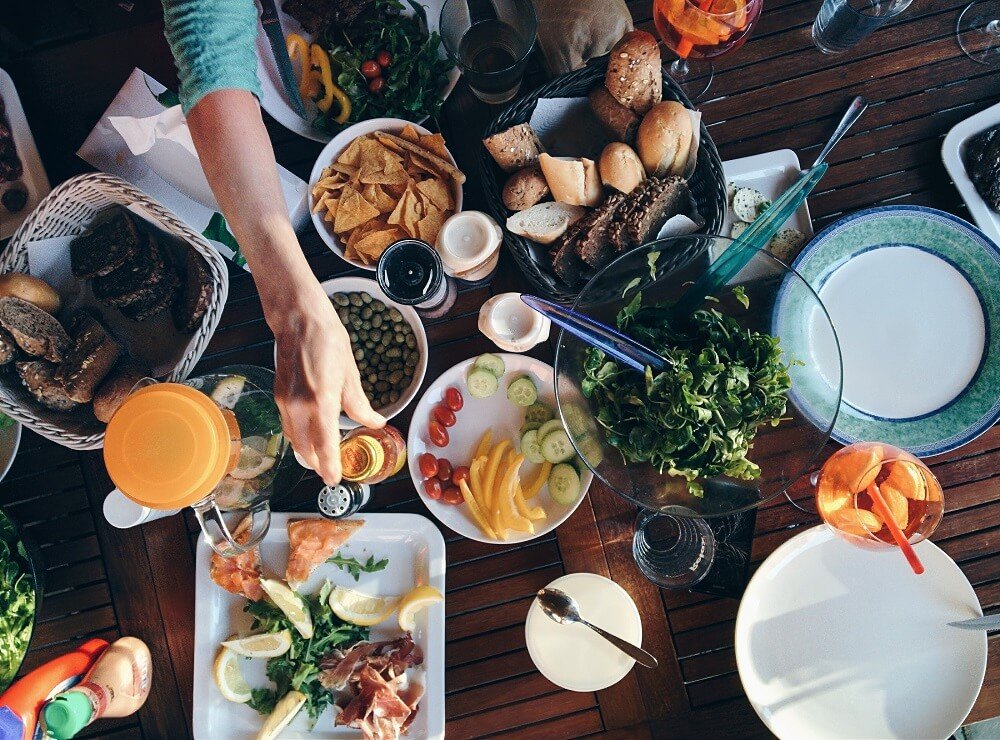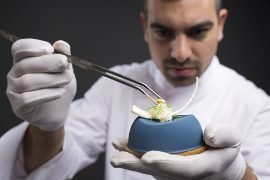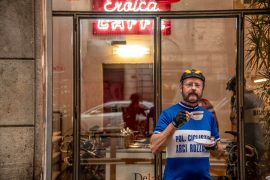The concept of “health” is a bit ethereal and has changed a lot over the centuries, but I really like the World Health Organisation’s definition of 1948 which says that it is “a state of complete physical, mental and social well-being and not merely the absence of disease or infirmity.” The definition is quite ambitious and it seems impossible to attain, but I think what counts here is not so much to win, but to participate. And how does one materialise this participation? In the end, everything is reduced to the way we integrate into the environment, and we do this in two ways: eating of it and inhabiting in it, and this also includes how we relate to others. Here are some ideas for improving this integration. These are ten ideas that we will be developing with further arguments in different articles —this is a first taste— and they should not be understood as isolated concepts, but as interrelated ideas, as if they were the links in a Chain; If one is accomplished, the following will be easier to follow through and we’ll be will be a little closer to our goal. So here we go…
- Eat real food. Obvious? Not really: all experts agree on recommending we reduce or eliminate over-processed foods —yes, those we just love— and we eat real foods. What are they? Cereals, peas and beans, vegetables, fruit, fish, meat, grain…
- More wholefoods. This follows on from the first piece of advice. Scientific evidence shows it is better to eat foods in their whole form —that is to say, always choose wholemeal over refined grain or flour, for example— and that consumption of wholefoods is related to lower mortality for any cause. Not a laughing matter.
- More vegetables. Let’s nitpick. Everything points to vegetable-based diets —not necessarily vegetarian— being much healthier. The Harvard School of Public Health, for example, recommends that at least half of evey meal should contain vegetables, either raw or cooked.
- Less less red and processed meats. This advice is discouraging for carnivores, but most studies tell us that industrial red meat and especially processed meat — industrial cold meats, sausages or burgers— harms us and harms the environment.
- Less self-medication. This piece of advice should be read carefully, because I am not in any way encouraging you to skip your doctor’s prescriptions. I am talking about that improvised medicine cabinet everyone caries in their bag. Best avoid it: medicines aren’t sweets and they have side effects.
- Move. If these tips were in order of rank, this would be the second or the first. It’s not just that sedentarism is killing us, it’s that moving keeps us alive: the body is designed to move around and when we do physical activity everything works better. Not moving is like having a Ferrari parked in the garage for years: the day we want to take it for a drive it will be all rusty.
- Sleep. When we sleep enough —about eight hours— that’s when we undergo repair, both physically and mentally. Those who suffer from chronic insomnia really know what we’re talking about, so even if it’s simply out of respect for those who cannot get sleep even if they want to, go to bed sooner. The next day, ‘Masterchef‘ will still be there (blessed television on demand).
- Meditate. It is not so much about sitting in the lotus position and closing your eyes —which is highly recommended, by the way— but of practicing relaxing, pleasurable activities that allow you to reduce your stress levels. For some it will simply mean breathing, playing the piano, doing crochet or practicing mindfulness.
- More open air. Many studies point to the fact that the environment is able to modify people’s behaviour, and all conclude that the most favourable, healthy environment from the psychological point of view is nature, as it reduces stress because it triggers involuntary attention, that which does not require any conscious effort.
- Be assertive. Assertiveness is one of the pending issues in communication in our country. It consists of defending your ideas while respecting those of the other: it raises your self-esteem and that of the other person, it creates more fluid working environments and relationships… and it leaves you very restful, to tell the truth.





















